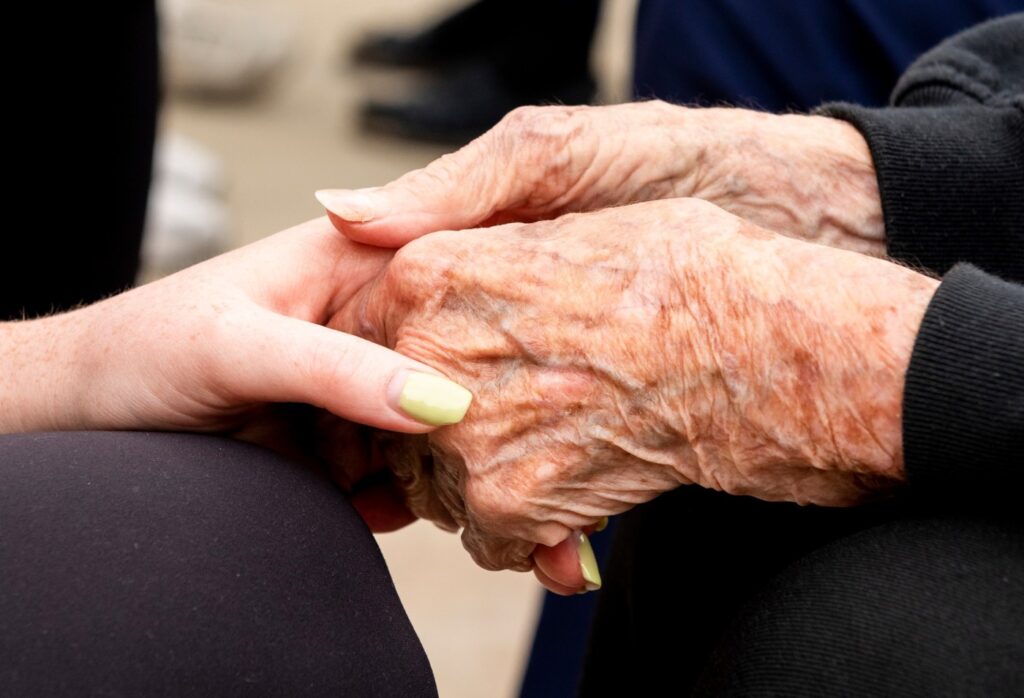
By Dr. Ashish Shah,
Contributing writer
What may at times feel like a flutter in your heart, or an increased heart rate, or even dizziness and fatigue, can all be signs of atrial fibrillation, or AFib.
What may seem like a fleeting moment, could lead to serious illness and permanent damage – especially in older adults. In fact, AFib is a major cause of strokes in older adults, which can be debilitating and a life-limiting factor.
AFib is the most common type of arrhythmia or abnormal heartbeat. While it is one of the most treated arrhythmias, it is often under-diagnosed. That’s because AFib episodes are different for each person and can occur frequently or rarely — and sometimes may not cause symptoms at all.
Common symptoms include:
Fatigue or lack of energy.
Heartbeat that races, pounds or flutters – aka heart “palpitations.”
Quick or uneven pulse.
Shortness of breath.
Feeling dizzy, faint or lightheaded.
Sweating.
Weakness.
Chest pain or pressure.
Dr. Ashish Shah. (Photo courtesy of MemorialCare)
It is important to note that AFib is more prevalent as you age, mostly because you’re more prone to having underlying conditions that can lead to AFib.
High blood pressure, obesity, thyroid problems, heart valve diseases, heart failure or a previous heart attack are all factors that could lead to an AFib diagnosis.
There is also a correlation between emphysema or sleep apnea and AFib.
It’s extremely important that if you have any of these underlying health conditions and you feel any of the symptoms above, you talk to your doctor or cardiologist immediately.
We are seeing an increase in AFib diagnoses within our senior population, with the onset and duration of the COVID-19 pandemic.
Many seniors deferred care, especially prior to vaccine availability. Minor symptoms could have made seniors feel responding to those symptoms as not “essential” at that time, and they delayed or put off telling their doctor about them.
It is important as health care providers that we ensure that you understand the risks of AFib and that you have access to the health care needed to make informed decisions.
Diagnosis and treatment
With some of my older patients, I notice there is a tendency to downplay or chalk up infrequent symptoms to “it just happens as I get older.”
While AFib and medical conditions can worsen with age, that doesn’t mean you should give up. Taking the steps to be accurately diagnosed with AFib can result in you living a longer and more complete life, and minimize your chance of stroke and other more life-threatening or emergent heart conditions.
AFib can be detected by some at-home devices, such as Apple Watches or Kardia monitors.
But confirming the diagnosis requires rhythm monitoring with either an EKG or a longer-term heart monitoring device, such as a Holter monitor or event monitor. Both are very non-invasive ways to help determine steps you can take to keep your AFib under control.
Once diagnosed with AFib, it’s not the end of the world.
AFib can often be managed with various medications, including those that reduce the amount of AFib someone has and blood thinners that reduce the risk of strokes. If medication doesn’t work, you will be referred to a heart rhythm specialist — like myself — who will use minimally invasive techniques, such as catheter ablation, that reduce AFib much more effectively than medications.
It is important to consult your doctor if you suspect you may have AFib to get a proper evaluation of your health risks and devise a safe treatment plan.
The MemorialCare Heart & Vascular Institute at Saddleback Medical Center offers a full spectrum of treatment options, from medication management to catheter and surgical intervention. Its experts are actively involved in clinical trials, and testing new medications and technologies to ensure patients are receiving personalized, state-of-the-art care that is best-suited for their individual needs. Information: 800-MEMORIAL or memorialcare.org/MHVI.
Ashish Shah, doctor of osteopathic medicine, is a board-certified cardiac electrophysiologist and cardiologist with the MemorialCare Heart & Vascular Institute at the MemorialCare Saddleback Medical Center, 24451 Health Center Drive, in Laguna Hills. He specializes in ablation therapy for arrhythmias, including AFib and V-Tach.
